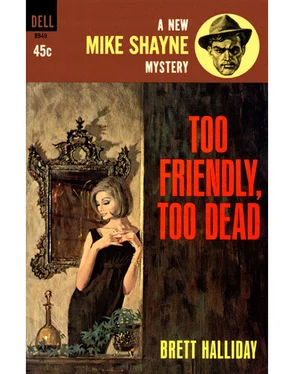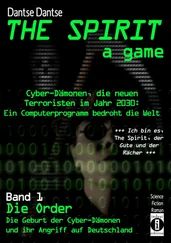Dan Fesperman - The Double Game
Здесь есть возможность читать онлайн «Dan Fesperman - The Double Game» весь текст электронной книги совершенно бесплатно (целиком полную версию без сокращений). В некоторых случаях можно слушать аудио, скачать через торрент в формате fb2 и присутствует краткое содержание. Жанр: Шпионский детектив, на английском языке. Описание произведения, (предисловие) а так же отзывы посетителей доступны на портале библиотеки ЛибКат.
- Название:The Double Game
- Автор:
- Жанр:
- Год:неизвестен
- ISBN:нет данных
- Рейтинг книги:3 / 5. Голосов: 1
-
Избранное:Добавить в избранное
- Отзывы:
-
Ваша оценка:
- 60
- 1
- 2
- 3
- 4
- 5
The Double Game: краткое содержание, описание и аннотация
Предлагаем к чтению аннотацию, описание, краткое содержание или предисловие (зависит от того, что написал сам автор книги «The Double Game»). Если вы не нашли необходимую информацию о книге — напишите в комментариях, мы постараемся отыскать её.
The Double Game — читать онлайн бесплатно полную книгу (весь текст) целиком
Ниже представлен текст книги, разбитый по страницам. Система сохранения места последней прочитанной страницы, позволяет с удобством читать онлайн бесплатно книгу «The Double Game», без необходимости каждый раз заново искать на чём Вы остановились. Поставьте закладку, и сможете в любой момент перейти на страницу, на которой закончили чтение.
Интервал:
Закладка:
“Dad, no. Jesus. But I’ve seen the pages, the torn parts anyway. They were part of a message someone sent me in Georgetown, but I had no idea they’d come from your copy. None. It was part of the anonymous tip. It’s the whole reason I’m here.”
He shook his head, dumbstruck. I’m sure he saw this as a deeply personal attack. I did, too. He shut the book and gently set it down.
“You should go to bed, son. We both should. We’ve done quite enough damage for one day. Just keep your options open, will you? If that’s even still possible.”
“Yes, sir.”
“To bed, then.”
But he stayed up. Even as I tried to fall asleep, I heard Dad prowling the shelves down the hall, methodically ransacking his collection as he looked for further victims-the whisper of rifled pages, the thunks of books being stacked, the slide and shuffle of more volumes being pulled for inspection. At first it was nerve-racking. Eventually it lulled me to sleep.
I awoke around four, fully alert, which always happens on my first nights abroad. The apartment was silent, but somewhere a light was on. I grabbed the old bathrobe I’d worn as a boy and padded down the hall.
Dad was asleep in his easy chair in a solitary pool of light, head back, mouth open. A novel was splayed against his chest, and piles of other books covered every level space. Some forty volumes in all were out, and there was no telling how many he had already returned to the shelves. Lines of dust marked the empty spaces, which shocked me a little with its evidence of decline. The air was musty from the disturbed pages.
Apparently what had finally halted his labors was the same thing that always stopped us whenever we went foraging-one book had beckoned more than the others, and he’d been drawn to revisit a favorite scene. When a saw the title, The Spy Who Came In from the Cold, I knew it would be open to the final page, where Alec Leamas and his lover are shot dead at the Berlin Wall. Dad had always cited it as a sublime encapsulation of the Cold War-small people crushed by the machinery of competing empires.
It was the UK first edition from Gollancz, with an orange cover illustrated by a boxed quote of praise from J. B. Priestley. Dad would hate to see the binding treated this way, so I carefully picked it up from his chest. It was indeed open to the last page.
I placed it on the end table, where another volume was splayed facedown. This one was nonfiction, a collection of interviews with Graham Greene. When I checked to see what had caught Dad’s eye, a comment about Kim Philby leaped from the page:
“I can understand a man’s temptation to turn double agent,” Greene said, “for the game becomes more interesting.”
It was an eerie echo of Lemaster’s remarks in our interview. For the professionals, I suppose, the game was everything. Isn’t that what was driving me as well? The excitement of discovery, the pursuit of the unknown. I knew then that I would keep going, no matter what Dad wanted, but I no longer had any illusions that it would be a romp, a mere puzzle, and Litzi needed to know that as well.
Shutting the Greene book, I pulled my robe tighter and took a blanket from the couch to cover Dad. I switched off the lamp and returned to bed.
Hours later I awakened to the smell of bacon and coffee, an American breakfast. Dad wore a suit and tie, a signal that urgent matters were afoot.
“Where are you going this morning?” I asked.
“Oh, this and that.” His mood was grim, businesslike. “Unless you’re about to tell me you’re quitting this fool’s errand and heading home.”
“Did Holly Martins quit when Major Callaway ordered him home?”
Dad was not amused.
“In real life, Holly Martins would have wound up facedown in the Danube. Here are the morning papers. Give Litzi my regards, but please keep her out of this.”
“Don’t worry. That’s the first item on my agenda.”
“Good.”
He said nothing further about his plans, and I said nothing about my upcoming appointment. Yesterday the precautions of Moscow Rules had seemed frivolous. This morning they felt like smart planning. Dad grabbed his overcoat and paused by the door.
“Son,” he said, “at some point you’re going to have to level with me about everything that’s going on, and about what you’re really looking for. I’ll leave it up to you to decide the best moment for that.”
“Yes, sir.”
It made me feel about thirteen, like I’d been grounded. After he left I listened to the clank and whine of the descending elevator. Then I poured more coffee and took it to the living room, where I found none of the chaos that had greeted me at four a.m.
Dad had opened the blinds to a full wash of autumn sunlight, and he had reshelved every book. Even the lines of dust I’d noticed the night before had been wiped clean, like fingerprints from the scene of a crime.
12
Litzi and I met at the Braunerhof, of course. A strudel for her, an omelet for me. But my appetite was off, especially once it became clear that Litzi still regarded our appointment as a lark. It was my duty to set her straight, and to talk her out of coming with me, even though the last thing I wanted was to cut short our time together.
Her kiss the night before had been warm but unfamiliar. We had changed in so many ways, and aging was only part of it. The long slouch into disillusionment had marked us both, and I think each of us recognized it in the other. Yet I was certain that the boy and girl we’d once been were still within us, aching to come out and play. But would that ever happen if I sent her away now?
“Tell me again about this business of Moscow Rules,” she asked. “Why is it so important?”
“It means you’re supposed to be extra careful, because you’re on enemy turf. So you use an elevated level of tradecraft.”
“Bill, we’re in Vienna.”
“In Smiley’s People the old Estonian, Vladimir, was in a nice park in London. The KGB shot him anyway.”
“In a novel. At night. During the Cold War. I looked it up online when I got home.”
I took her hand. She smiled, but I didn’t.
“Litzi, I know this may seem like harmless fun. I felt that way for a while. But it isn’t. To some people, anyway. Which is why I’d feel a whole lot better if you sat this out. Then, when I’m done, if you still want to see me-”
She frowned and let go of my hand.
“You’ve been talking to your father, haven’t you?”
“How’d you know that?”
“Has he warned you off me?”
“He’s warned me off everything but you. And he’d be furious if something happened to you because of me.”
I told her his story about the beefy guy at the wedding, and the warning about old secrets that had anything to do with code name Dewey. She watched me closely, reappraising. Then she took back my hand.
“So this is supposed to make me less likely to come along?”
“Litzi, it’s not a game.”
“Of course it isn’t. It also isn’t an old letter from an archive, where everyone has been dead for five hundred years. From what you’re saying, this is still alive and breathing. For me that’s a plus, not a minus.”
“Alive, breathing, and possibly lethal.”
“I can take care of myself, Bill. Or have you forgotten our last great adventure?”
“As if that would be possible.”
Indeed, while my imagination had embellished all those cafe trysts with my dad, and my youthful errands, the weekend Litzi was referring to had been truly audacious, and might easily have ended in disaster. And, just as it was now, the whole thing had been my idea.
It went like this:
Just after my seventeenth birthday, and only three weeks before Dad and I were due to depart for his posting in Berlin, Litzi and I disappeared together on a farewell excursion. Three nights and four days, all on our own, without telling a soul.
Читать дальшеИнтервал:
Закладка:
Похожие книги на «The Double Game»
Представляем Вашему вниманию похожие книги на «The Double Game» списком для выбора. Мы отобрали схожую по названию и смыслу литературу в надежде предоставить читателям больше вариантов отыскать новые, интересные, ещё непрочитанные произведения.
Обсуждение, отзывы о книге «The Double Game» и просто собственные мнения читателей. Оставьте ваши комментарии, напишите, что Вы думаете о произведении, его смысле или главных героях. Укажите что конкретно понравилось, а что нет, и почему Вы так считаете.












